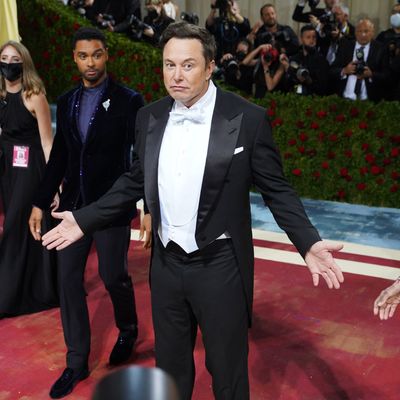
So far in Twitter v. Musk, there have been two main voices. There’s Elon Musk, of course, whose presence on the social-media platform has made his boob jokes and meme mastery near ubiquitous in the culture. Then there’s the voice of Twitter — or really, Twitter’s counsel, who have used the court in legally sassy ways to get ahead of their adversaries and define the scope of the case.
But one voice has been missing until today, and that was probably the most important one: that of Chancellor Kathaleen St. Jude McCormick, the judge presiding over the trial in Delaware Chancery Court, and the person who will ultimately decide the fate of this $44 billion acquisition.
Today, Chancellor McCormick issued three separate opinions about data and discovery — who gets what information and how much of it. In the scope of things, it’s relatively procedural, but it will define the boundaries of the case yet to come. The tl;dr is that Musk is mostly on the losing end of his voluminous data requests. In particular, Musk’s team had asked during a court hearing on Wednesday, which was broadcast via a public phone line, for every piece of data that Twitter had during the last two and a half years. This is all to support Musk’s theory that Twitter is fraudulently goosing its metric of monetizable daily active users, or mDAU, lower, in a bid to hide how much spam there really is on the platform.
Not only did Twitter’s lawyer, Bradley Wilson, say this was more than they could reasonably provide, he also raised the specter of Musk’s not playing by the rules in order to convince McCormick to shoot it down: “I don’t say this lightly, but I think it’s important to keep in mind the person to whom we’re being asked to turn this data over to. This is someone who has publicly mocked Twitter for seeking to enforce a nondisclosure agreement, who has insinuated that this litigation would be used as a vehicle for publicly disclosing Twitter’s internal data, and who recently and publicly reaffirmed and if he is able to get out from the contract that he signed, his plan is to start a competing business, x.com.”
To all this, McCormick did not mince words:
“Defendants’ data requests are absurdly broad,” the chancellor wrote in her second published opinion of the day. “Read literally, Defendants’ documents request would require Plaintiff to produce trillions upon trillions of data points reflecting all of the data Twitter might possibly store for each of the approximately 200 million accounts included in its mDAU count every day for nearly three years. Plaintiff has difficulty quantifying the burden of responding to that request because no one in their right mind has ever tried to undertake such an effort. It suffices to say, Plaintiff has demonstrated that such a request is overly burdensome.”
This is absolutely wonderful language. Firm yet smooth; direct without being too hard. (Maybe I would feel different if I were the lawyer for Musk.) There is no hiding behind legalese or trying to bury the issues in language that require paraphrase or knotty explanations. More judges should write this way.
The other decisions here all kind of break the same way: The judge is requiring Musk’s team to produce analysis created by a team of data scientists prior to litigation they wanted to be otherwise shielded. They also require Twitter to produce data on about 9,000 users that they have used to calculate mDAU, which Twitter’s lawyer had said on Wednesday in court would be doable.
There’s still nearly seven weeks to go before Twitter v. Musk goes into the courtroom.






























